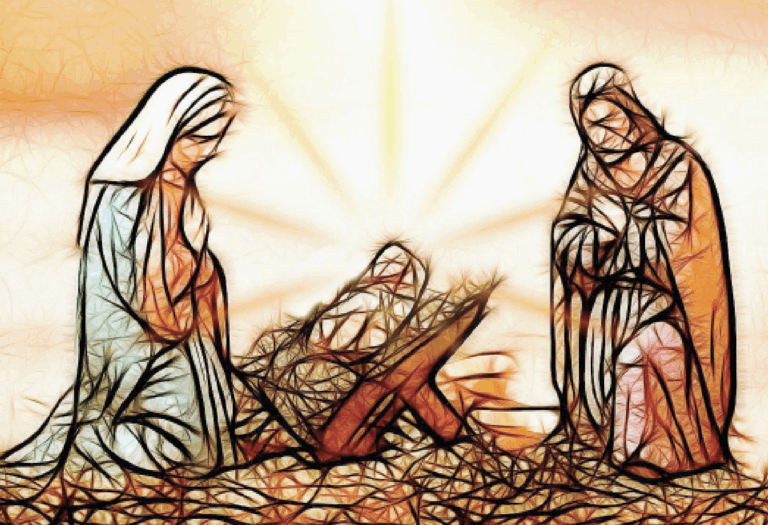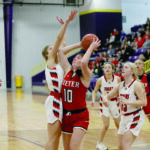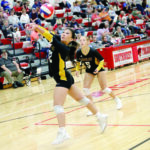A holistic, conventional breast cancer path
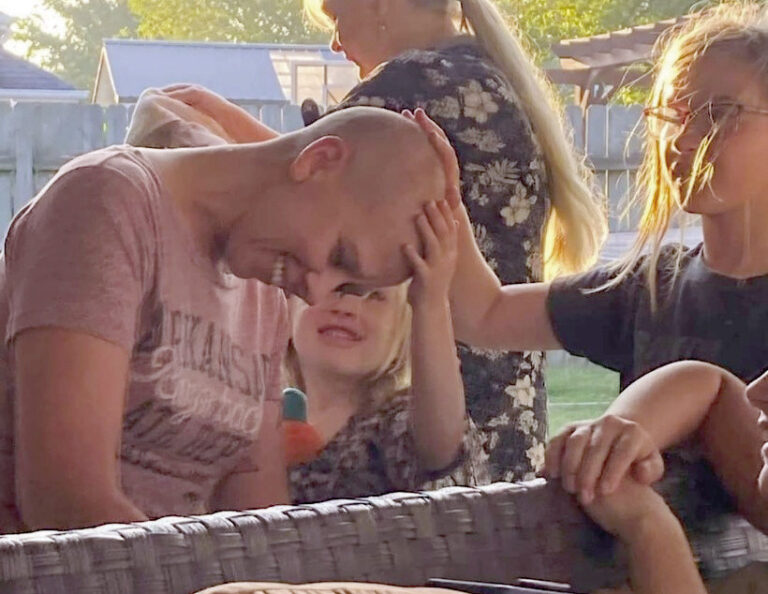
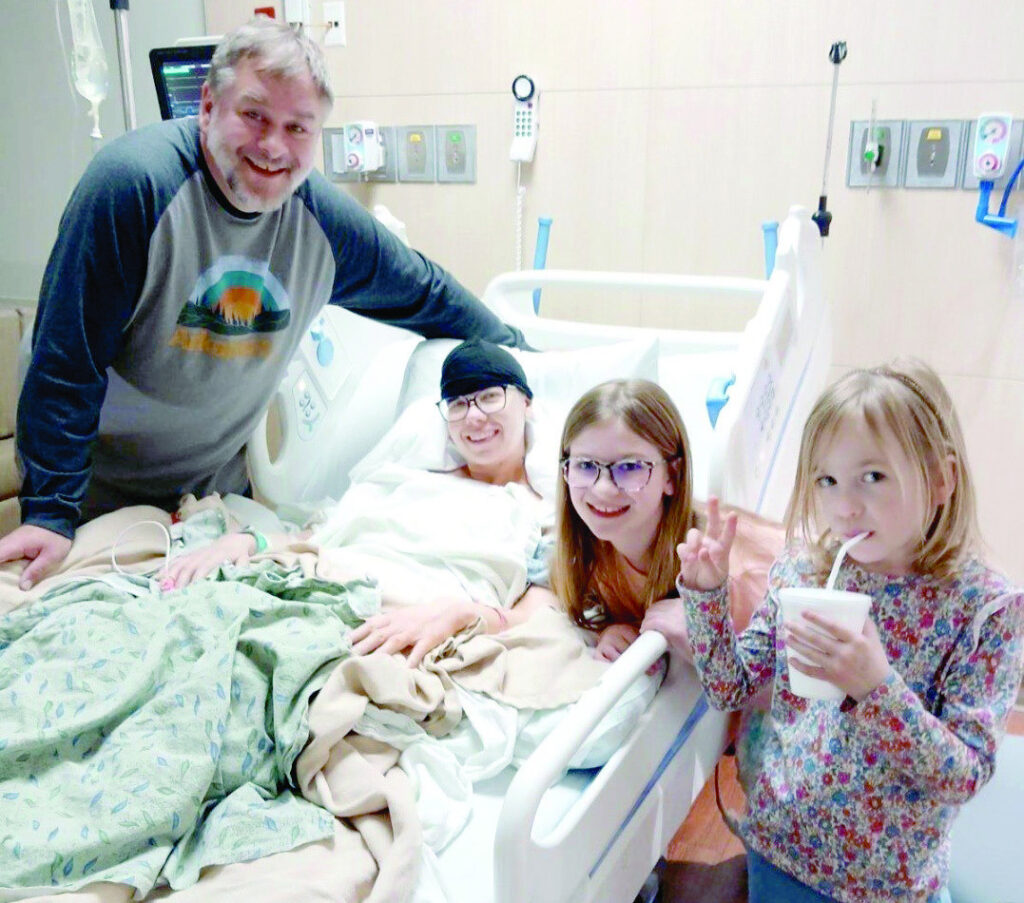
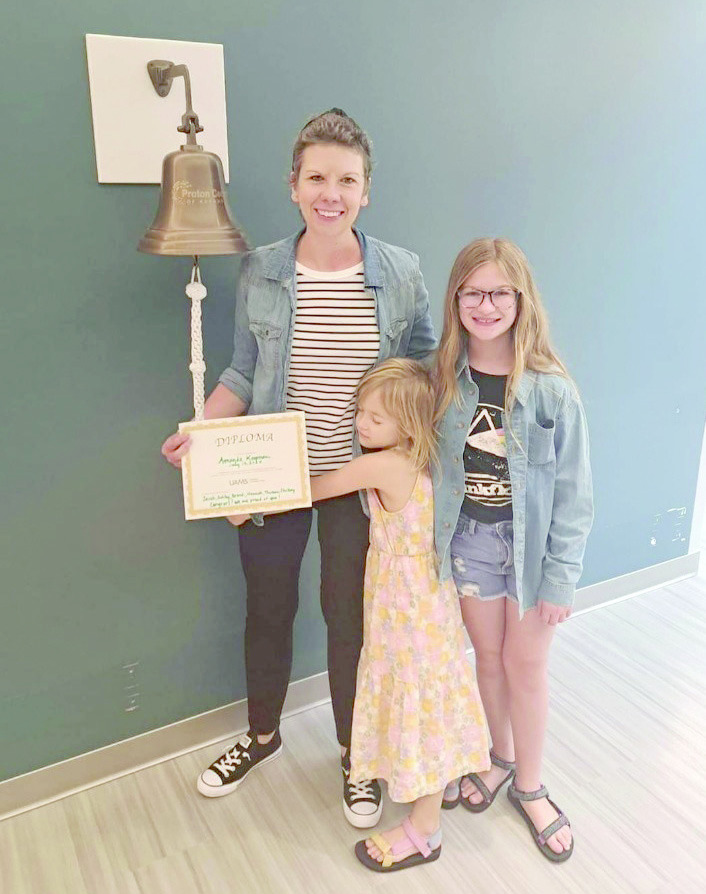
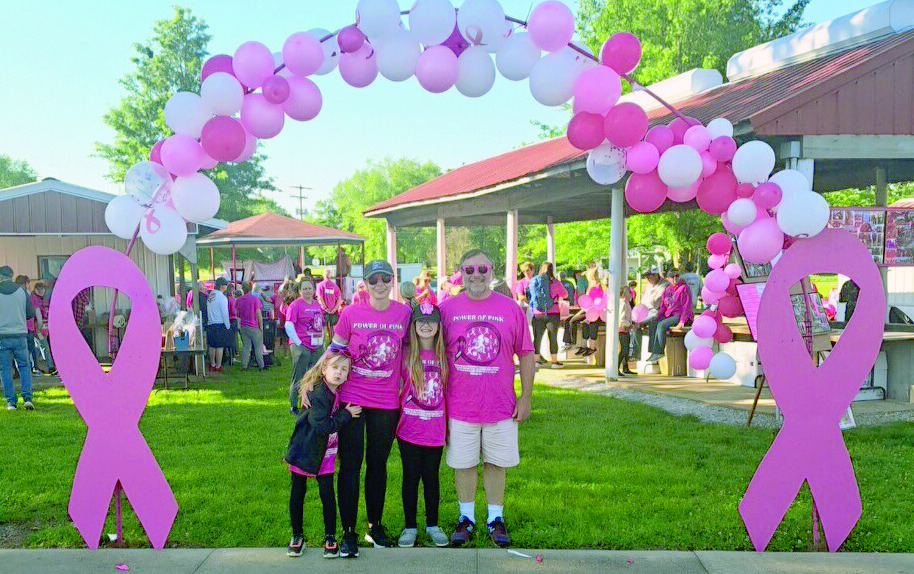
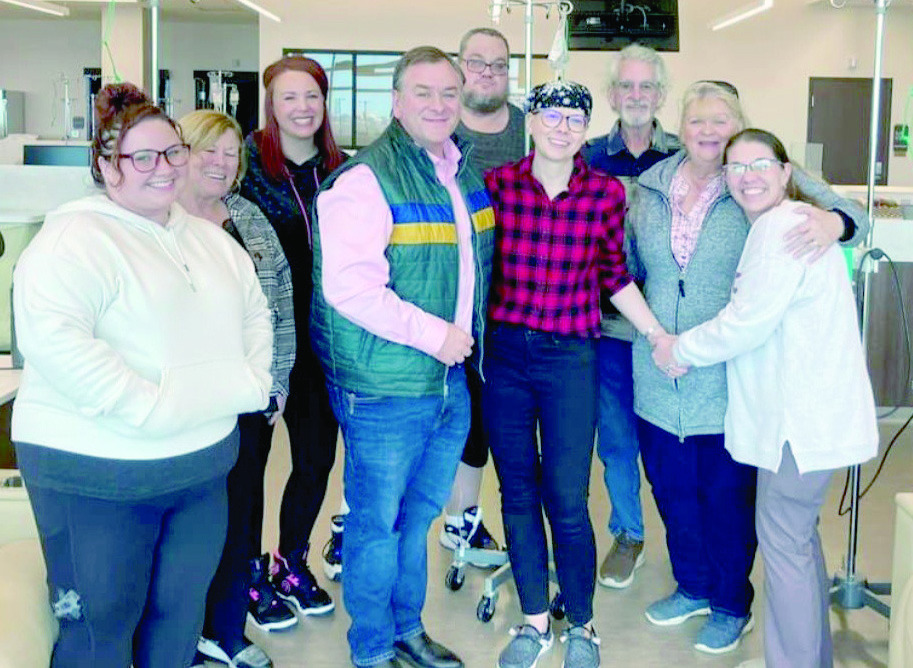
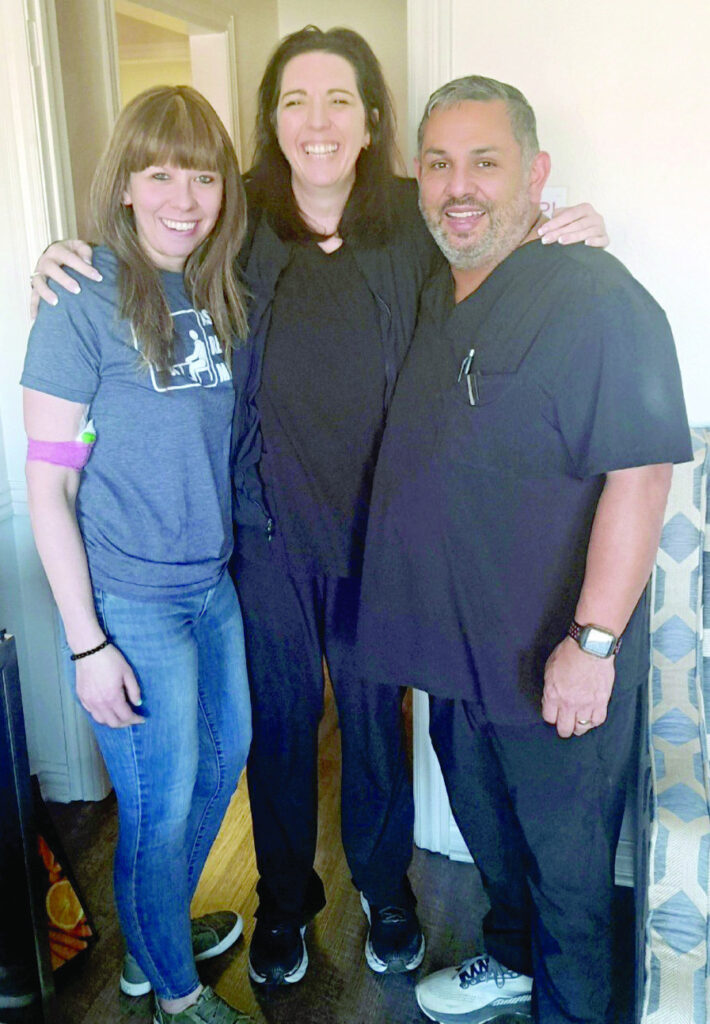
BY JORDAN TROUTMAN [email protected]
“Sugar was fueling my cancer,” said Manna Koopman.
Koopman, who lives in Lowell, Ark., and was a 2024 recipient for the Wheaton-based Power of Pink organization, has a family history of breast cancer, leading her to complete genetic testing when she was diagnosed wit breast cancer.
The result? She learned she had two gene mutations.
“I have a PMS2 gene mutation,” she said. “And, one that is a sister to BRCA. My grandmother on my mother’s side had breast cancer. I think gene testing is so important and wish it more accessible to people in general.”
Koopman was diagnosed with breast cancer at age 39, she is a wife and mother to two young daughters, 7 and 11.
“In September 2020, I felt a lump while doing a self-examination on my left breast,” she said. “I went to my gynecologist, who saw me immediately, and they said they would send me for a mammogram.
“I personally am against mammograms, so we did a breast ultrasound.”
She was told there were no signs of cancer, that its was a “fibro-something,” but a benign tumor.
“They said it could change in size, but it looked good,” she said. “In March 2023 it grew quite a bit.”
Koopman was told it still looked good, with no signs of cancer, but they could do a biopsy.
“In July 2023 I felt a lump in my armpit,” she said. “I looked it up and realized it was a swollen lymph node. We did do a biopsy and found out it was triple negative, stage 3 breast cancer.”
Koopman realized this type of breast cancer is aggressive and dangerous, but she wanted to look into a more natural route for treatment.
“It was scary,” she said. “I talked to friends and I got in touch with an oncologist who had experience with triple negative, but I still wanted to keep it natural. I found a clinic who had an integrative oncologist. She said, ‘I didn’t think we can beat this cancer 100 percent holistically or 100 percent conventionally – you need both.’” Koopman did an RGCC test, which assesses the cancer cells sensitivity to chemotherapy and/or nutritional extracts.
“It cost me $3,000, and the test was completed in Greece,” she said. “I am happy to have done that test.”
Koopman started chemotherapy in August 2023, as well as using integrative therapy like IV vitamin C and ozone therapy.
“We started injecting one of my two tumors with mistletoe three times a week,” she said. “Then the other therapy twice per week and chemo once per week. The tumor she was injecting with mistletoe started to shrink significantly. I knew it was working.”
They then injected both tumors with mistletoe until they were gone.
“I kept up with shots in the stomach of the mistletoe after that,” she said. “I felt like I did really well. I was able to dance and do Zumba.”
Koopman was told to do a keto diet with clean and organic foods.
“I lost 20 pounds,” she said. “I did 6 months of chemo and still had energy to stay active, even when they switched me to the red devil chemo drug.”
Koopman then had a bone marrow filgrastium, which helps stimulate white blood cells in the body.
“I felt the pain in my bones after that,” she said. “That was the worst experience.”
Koopman had a full hysterectomy in the beginning of March 2024, and at the end of March she had a double mastectomy.
“I didn’t achieve TCR, so they advised me to continue treatment, as well as doing radiation,” she said. “However, I decided to do proton therapy.”
Proton therapy is a form of radiation where protons are beamed to target the cancer.
“I had to do that in Little Rock Ark.,” she said. “An organization called Goodness Village provided me with a fully furnished apartment to rent for $60 per day. I had 33 rounds of radiation over six weeks.”
Koopman said this therapy is less damaging to her cells, but she did still experience sores, itchiness, and redness on her skin.
“My kids came to visit me every other weekend,” she said. “And, I went to see them the other weekends. So, I got to see them every weekend. I also worked remotely so I didn’t have to miss that much work.”
Koopman said she only missed a couple days of work throughout her treatment, and she is blessed to have that opportunity. She also made a resolute decision when her hair began to fall.
“It took three rounds of chemotherapy before I shaved my head,” she said. “I was just losing it so fast I decided to shave it off. “
Koopman said her two daughters have a 50 percent chance of inheriting the same gene mutations she has.
“I am going to have them tested,” she said. “I am a big believer that lifestyle holds a lot in terms of health, but this kind of testing is so important.”
Koopman is now in a clinical trial since she has completed radiation.
“I didn’t get the experimental drug,” she said. “But they run a lot of tests and pay very close attention to you. I think this should be the standard of care for anyone with cancer, whether or not they are in a trial.”
Koopman had a couple of continuing treatment options, including Xeloda.
“But I did a Caris test and found out that would only be 6 percent successful in treatment,” she said. “I decided to stick with immunotherapy and take Keytruda once every three weeks.
“At this time, I have no circulating cancer cells in my body, nothing so far.”
However, Koopman is experiencing side effects from her treatment including a rash on the area that was radiated.
“I think it is a blessing and a curse to get a cancer diagnosis at 39 years old,” she said. “I feel like I have stamina and endurance to fight it, but the risk of dying so young with young children is unfortunate.”
Koppman said it makes sense though, as her gene mutation paired with a triple negative diagnosis happens to younger people.
“Diets, especially the American diet, as well as environment are all things to consider in your lifestyle,” she said. “We are seeing people get cancer younger and younger. Things like aluminum in deodorant, dying your hair, tight bras, and even perfumes can also contribute to cancer.”
Koopman said she was blessed in her breast cancer journey to have the support system she has.
“There were a lot of people who were all amazing,” she said. “My husband and my children, my mom and stepdad, my dad and stepmom, my in-laws – they all stepped up to help. My boss and coworkers all said I would have a job, so I didn’t have to worry. My friends put on fundraisers to help raise money for all of the treatments and tests. I had a really amazing support system.”
A friend of Koopman, who was a former Power of Pink recipient, nominated her for Power of Pink in 2024.
“I wish they would do genetic testing on everyone,” she said. “My personal feeling is that mammograms give a lot of false positives, and I feel like they can do more harm than good.
“I asked the guy doing my breast ultrasound if they would have caught it on a mammogram and he said no. There has to be a better way, I don’t know what that looks like right now, but I would say to go for ultrasounds.”
Koopman said she believes blood work is more telling in many cases that almost anything else in terms of preventative care.
“Scans can only see it once it is there,” she said. “To woman I say be proactive and don’t let your doctors dismiss your gut feeling. I feel like self-examinations and knowing your genetic testing is very important.”
Koopman said she was lucky to have done the research and found an integrative care team.
“They weren’t close minded to holistic or conventional treatment,” she said. “But instead suggested we combine them both.”
There is a genetic test Koopman got called the MTHFR, which tests how a person’s body detoxes.
“If your body can’t detox the chemotherapy, it can kill you,” she said. “Sugar was fueling my cancer. Pay attention to your diet.
“I craved sugar and carbs during chemo and the integrative therapist said, ‘Your cancer is craving that – don’t feed it.’” Koopman is a devote Catholic and said her cancer diagnosis was a way to strengthen her faith.
“I don’t know if I would have this close of a relationship with God without the cancer,” she said. “I am happy, smiling and positive, all because of God.
“Also, Janice McCracken [Power of Pink founder] is the ultimate superhero. I hope I can be like her someday. She is a very inspiring woman. All of the sponsors that contribute to the Power of Pink, as well. We wouldn’t have this without them, and I am very appreciative.”


